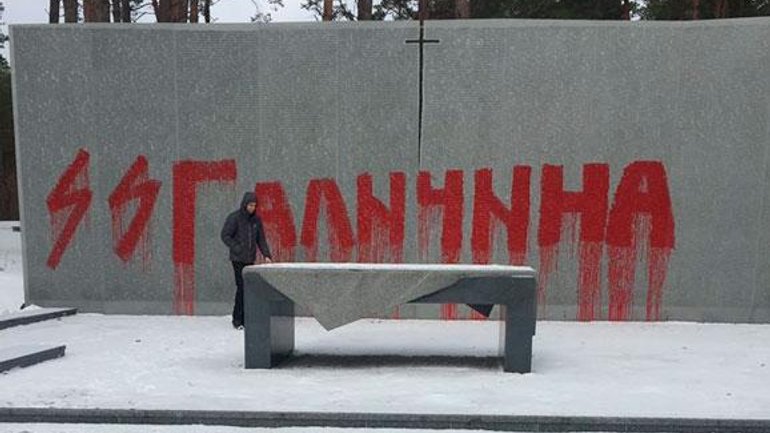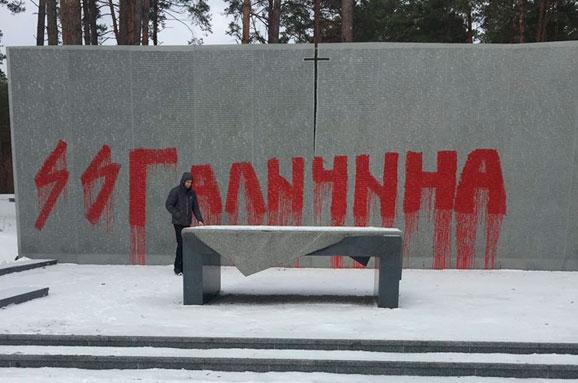Vandalism in Bykivnya is provocation disguised as a Polish response to Huta Pieniacka, - Ukrainian historian

Defiling of monuments in Bykivnya - a provocation that tried to present as a Polish response by Huta Pieniacka. It is written on the page to Facebook head of the National Memory Institute Volodymyr Vyatrovych.
"Vandalism committed to the Polish sector of the memorial discovered that its true performer is a third party interested in aggravation of relations between Ukrainians and Poles,” Vyatrovych wrote.
According to him, this case should encourage Ukrainian and Polish combine efforts not only to protect their memorial sites, but also “to avoid sowing dissent between our peoples.”
It should be noted that on the night of 24 on January 25, unidentified persons painted with red paint the cemetery of the victims of totalitarianism in Bykivnya, near Kyiv, and tried to destroy with a pinch bar the entrance to the Polish military cemetery. This was reported by Director of the National Historical Memorial Preserve “Bykovnya graves” Bohdan Bilyashivsky, Polish Radio reports.
“Unidentified persons made inscriptions in red paint in the Ukrainian and Polish sectors of the cemetery. In Polish sector they wrote symbols of SS Galicia, and on Ukrainian -OUN UPA (Ukrainian Insurgent Army) and swear words.
There was also an attempt to destroy the scrap entry into the Polish part of the cemetery. One column is tilted, the other is intact,” Bilyashivsky.
The Polish side represented by the Prime Minister of Poland Beata Shydlo said that Poland will take appropriate action in response to the desecration of the Polish graves of Bykivnya. According to the Polish government, Warsaw needs to get more information on this issue in order to take appropriate action.
“Of course, our actions and our steps will be adequate. We need to know the circumstances of what happened, whether it was a provocation and what the nature of these activities was,” said the Polish prime minister.
As reported, on September 21, 2012, a Polish military cemetery was opened in Bykivnya near Kyiv. Almost two thousand Poles who had been killed in 1940 by troops of the NKVD on Stalin's orders rest there. The memorial in Bykivnya is a fourth so-called Katyn cemetery after the cemetery in Katyn Forest, Midne and Kharkov-Pyatihatki. In spring 1940, overall more than 22,000 Polish prisoners captured after the Soviet attack on Poland fell victims of the NKVD. This tragedy became known as “Katyn crime.”
Earlier, on January 10, Brody police station received information that the memorial to the victims of the tragic events of 1944 in the village of Huta Pieniacka was destroyed. Criminal proceedings were instituted under Part. 3 Article 161 of the Criminal Code (violation of civil equality based on race, nationality or religious beliefs).









